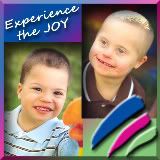For Ferguson (2003), there is also a third perspective in the professional literature viewing the ability to cope in parents of children with disabilities. The behavioral approach examines family reactions to the diagnosis of their child and subsequent changes in their behavior. This approach examines such things as role disruption, marital discord, and social difficulties. It is out of this perspective where we hear that parents who have a child with a disability may experience increased difficulties in their relationship with one another. This is another area that can assert pathology, as was the psychodynamic approach. What this approach has not accounted for is that parents of children with disabilities have a lot more to worry about given increased responsibilities and the increased need to advocate – and this is what may increase these difficulties in their life versus just the diagnosis of their child. For instance, in our family we thought we knew what this parenting thing was all about. This was our third child and we THOUGHT we knew what we were getting into. In came the diagnosis and, more importantly and of greater impact, a world of all new things to know and learn about, like…
Quinn’s financial assets have to be kept to a minimum. If she has too much money or too many assets, it will make her ineligible for services when she is an adult. I had a meltdown not too long ago because my mother purchased some savings bonds for Quinn that she didn’t tell us about – oh no, we must know and keep track of every little penny so it doesn’t go about a certain number. And what happens when we are no longer around, who will follow. Hopefully our sons will, but that is a lot to put on them.
Life insurance is hard to come by for children with Down syndrome. They are seen as “risky” to insure, even someone like Quinn who has absolutely no health problems. Imagine being told that your child is too risky to insure. That feels lovely. We finally found a company to insure her, but now we have to monitor this so it doesn’t impact the money situation noted above.
We have to set up a special needs trust so we have some money for her when we die, but this money cannnot be directly in her name. This was our New Year’s Resolution and it is already March and it isn’t done. Note to self to get on that.
We have to know about birth to three, early intervention, and special educational law and what services we have a right to. Plus we have to advocate and be pushy despite all the other things we have to do. And then add in that we have to do paperwork on other funding possibilities like Katie Beckett, which covers a lot of Quinn’s therapy because we are going private. Plus that relates to the whole thing about money too - she can't have too much or she won't get Katie Beckett. Getting a headache yet?
We have to learn and implement therapies and exercises at home. You can’t just chill with your child. And if you do like anyone one else would do and just let her sit there while you are doing other work, you start feeling guilty. Actually it is Neal who has really taken over the therapy thing. He has had to become a paraprofessional, feeling like he always has to be doing something to assist in her development. This is a full-time career for him. Parenting is not just parenting anymore.
The point is that of course there are behavioral changes in a family’s life, especially in the way of role disruption – there is just so much to do. Just when you thought things were going to go as expected, you enter in a whole new world. And you may tend to feel you have to anticipate what may be the next problem or thing you need to know. But support – emotional and in resources –is the key. Krauss and Seltzer (1993) noted that when given the appropriate resources, families with children with disabilities fare no better or worse that families without children with disabilities. That is what we really need. If we had more resources and support, our job as parents would be a whole lot easier. But I understand that is a view that many can have and our struggle is not an unique one at this time. But Quinn is all worth this - and she has taught me what unconditional love is really about.
-Karyn
What day is it, even?
5 years ago


















No comments:
Post a Comment